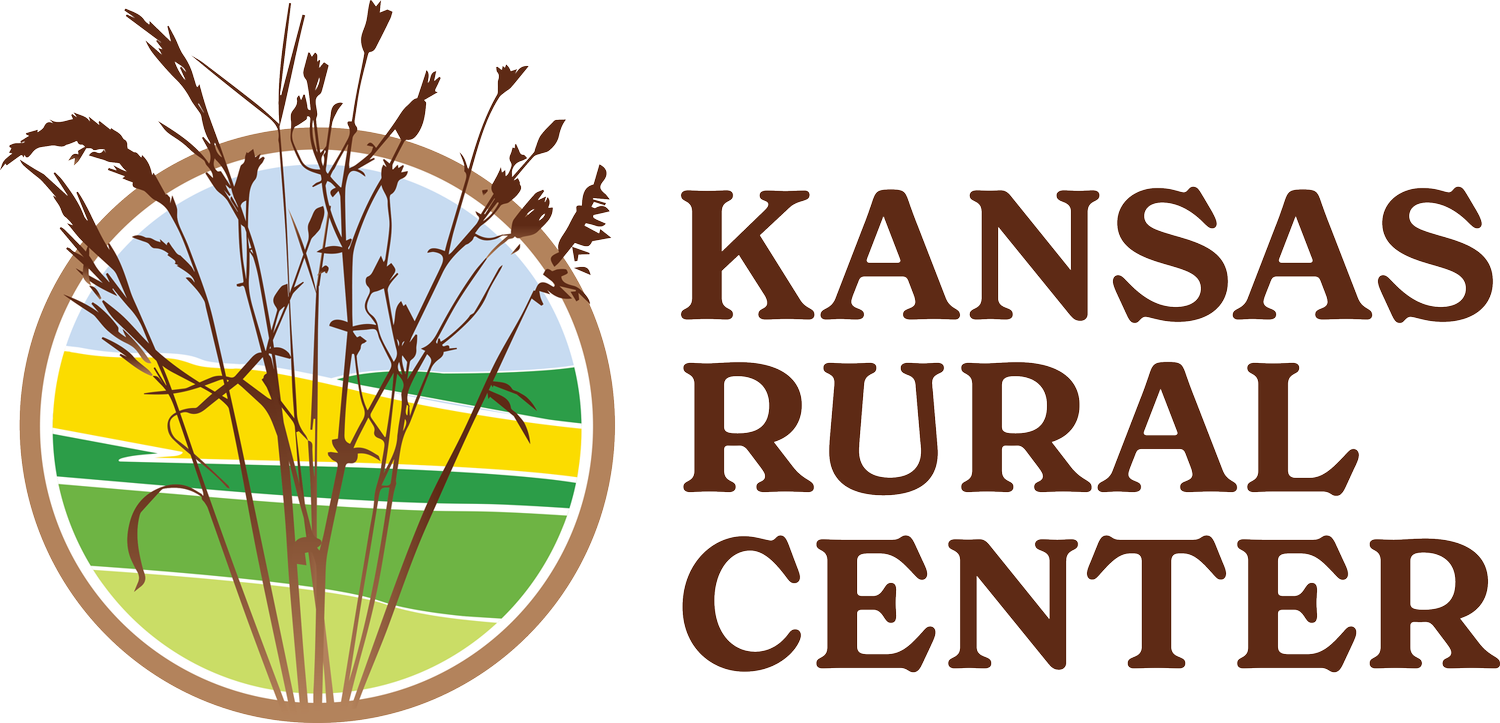KRC Has Been There
and We’re Still Here
Over the past month, I have been reflecting on the state of sustainable agriculture and food systems over the past 45 years. While so much progress has been made, especially recently with the first Kansas Local Food Summit and the awarding of programs like the Resilient Food Systems Infrastructure grant, so much work remains. The Kansas Rural Center(KRC) has been and remains, a steadfast advocate and resource for sustainable agriculture and rural community development in Kansas for over four decades. Established in 1979, KRC has continually evolved, adapting to the changing landscapes of agriculture, policy, and community needs while staying true to its mission of promoting an environmentally sound, economically viable, and socially just food and farming system. Despite all the changes through out the years, it is striking, on reviewing our history, how consistent our work has been and how relevant it remains today.
The center’s longevity and impacts are rooted in its commitment to addressing the challenges and opportunities facing Kansas’ rural communities. From its inception, KRC has focused on empowering farmers, ranchers, and other Kansans through education, advocacy, and support. The organization has been at the forefront of promoting sustainable farming practices, such as organic farming, agroecology, and regenerative agriculture. By encouraging practices that build healthy soils, protect water quality, and enhance biodiversity, KRC has helped countless farmers and ranchers improve their land’s productivity and resilience while reducing their environmental impact.
One of the Kansas Rural Center’s most significant contributions has been its ability to foster a sense of community and collaboration among Kansas’ residents. Through its workshops, field days, and conferences, KRC has provided a platform for farmers, ranchers, and advocates to share their knowledge, experiences, and innovations. These events have served as a catalyst for building networks of like-minded individuals who are committed to creating a more sustainable and resilient food system. By bringing people together, KRC has helped to strengthen the social fabric of rural communities, ensuring that they remain vibrant and resilient in the face of challenges.
Kansas Rural Center’s work is not limited to sustainable farming practices; the organization also addresses broader issues that impact rural Kansas, such as climate change, water conservation, food systems and rural healthcare. Recognizing the interconnectedness of these issues, KRC has taken a holistic approach to rural development, advocating for policies that support healthy ecosystems, strong local economies, and equitable access to resources. Through its policy work, KRC has been a voice for rural Kansans in state and federal decision-making processes, ensuring that their needs and concerns are heard and addressed.
The Kansas Rural Center’s enduring presence is a testament to its ability to adapt and respond to the evolving needs of rural communities. As the agricultural landscape has changed over the years—with the rise of industrial agriculture, increasing economic pressures, and the growing impacts of climate change—KRC has remained committed to advocating for sustainable, locally-based solutions. The organization’s work has expanded to include food policy councils, climate-smart agriculture, and initiatives that support beginning farmers and farm-to-school programs. These efforts have helped to create more opportunities for rural Kansans to thrive in a rapidly changing world.
With the challenges facing Kansas communities today, the Kansas Rural Center’s work is critical as ever! Kansas continues to grapple with issues such as farm viability, economic uncertainty, and environmental degradation. KRC’s commitment to sustainable agriculture, policy advocacy, and community empowerment ensures that it will continue to be a vital resource for Kansas’ residents.
Tom Buller, Executive Director - KRC


